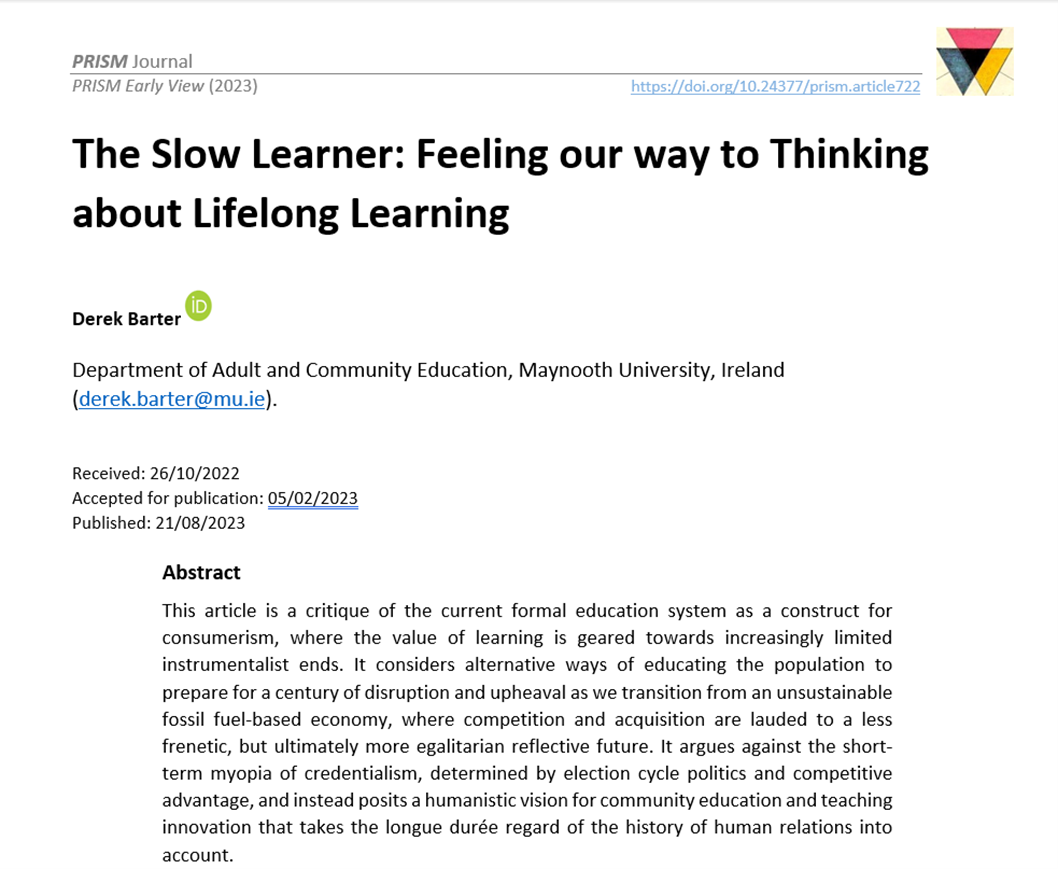The Slow Learner: Feeling our way to Thinking about Lifelong Learning
DOI:
https://doi.org/10.24377/prism.article722Abstract
This article is a critique of the current formal education system as a construct for consumerism, where the value of learning is geared towards increasingly limited instrumentalist ends. It considers alternative ways of educating the population to prepare for a century of disruption and upheaval as we transition from an unsustainable fossil fuel-based economy, where competition and acquisition are lauded to a less frenetic, but ultimately more egalitarian reflective future. It argues against the short-term myopia of credentialism, determined by election cycle politics and competitive advantage, and instead posits a humanistic vision for community education and teaching innovation that takes the longue durée regard of the history of human relations into account.
Accepting Gellner’s exo-socialisation model for mass education in the industrial age, it asks what will replace this in a post-industrial world. Beginning with the principles of widening participation and social inclusion as the starting points for a socially just education, it argues that relationships are central for emancipatory education to take effect. It uses two programmes offered by Maynooth University’s Department of Adult and Community Education, the Communiversity and the Critical Skills modules: A Social Analysis of Everyday Life, as examples of programmes that have inclusion, equality and diversity, and social justice as core principles in their modus operandi. Here participation, dialogue, reflection, and a willingness to engage offer hope for an intergenerational lifelong learning approach to education in the twenty-first century that is ‘thought led’ rather than ‘market driven’.
Downloads

Downloads
Published
Issue
Section
License
Copyright (c) 2023 Derek Barter

This work is licensed under a Creative Commons Attribution-NonCommercial-NoDerivatives 4.0 International License.
Authors retain copyright and grant the journal the right of first publication with the work.
The version of the article published as part of this issue is licensed under a Creative Commons Attribution-NonCommercial-NoDerivatives 4.0 International Licence and allows others to read, download, copy, distribute, print, search, link to the full text of the first version of this article, or to use it for any other lawful purpose in accordance with the license. The author maintains copyright for the article published in this journal.
This journal provides immediate open access to its content and has no submission or publication fees.


